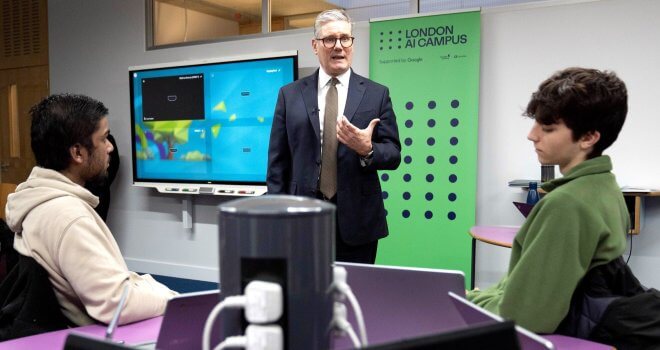Best Practices For Facilitating Virtual Project Teams

In today’s digital age, where remote work is increasingly becoming the norm, managing virtual project teams effectively has emerged as a vital skill for project managers. It’s a shift that presents a unique set of opportunities, as well as challenges. This article aims to provide insights and best practices for facilitating virtual project teams.
We will explore strategies for enhancing communication, building a strong and cohesive unit remotely, maintaining accountability, addressing the unique hurdles faced by virtual teams, and ensuring your team remains engaged and motivated.
Moreover, we will delve into the importance of continuous training and development to upskill your virtual team. By adapting to this new era of work, project managers can leverage the benefits of virtual teams and lead their projects to success.
Embracing the Virtual Shift: Understanding the Importance of Virtual Teams
The shift towards virtual teams has been largely driven by technological advances and the ongoing globalisation of businesses. Virtual teams provide several benefits – they offer flexibility, help reduce overhead costs, allow access to a broader pool of talent, and promote a diverse and inclusive work environment. Understanding these benefits can help managers appreciate the value and potential that virtual teams bring to the table.
However, virtual teams are not without their challenges, including issues related to time zone differences, communication barriers, and cultural diversity. Embracing this shift requires project managers to not just acknowledge these challenges, but also to develop strategies to overcome them. By doing so, managers can maximise the advantages of virtual teams and ensure that their projects reach their full potential.
Communication is Key: Effective Strategies for Virtual Team Interaction
Effective communication plays a crucial role in the success of virtual teams. Unlike traditional office settings, virtual teams often rely heavily on written communication and digital tools to interact. This reliance can lead to misunderstandings due to the lack of non-verbal cues and immediate feedback.
To mitigate this, project managers should promote a communication-friendly environment, where team members feel comfortable sharing their thoughts and concerns. Regular video calls can help humanise interactions and foster a sense of connection among team members.
Moreover, using project management tools can aid in clear, organised communication and keep everyone on the same page. Encouraging open communication not only helps in the smooth execution of tasks but also builds trust within the team. It is up to project managers to lead by example, prioritising clear, honest, and regular communication to ensure the cohesion and efficiency of their virtual team.
Virtual Team Building: Fostering a Strong and Cohesive Unit Remotely
In the absence of a physical workspace, creating a unified, collaborative virtual team can be challenging. Document management tools are integral in this process, allowing team members to easily access, share, and edit documents, facilitating transparency and collaboration.
These tools can bridge the gap created by geographical distance, ensuring that everyone is working with the same information and towards the same goals. Additionally, scheduling regular team building activities can also foster a sense of camaraderie among remote team members. These could be as simple as virtual coffee breaks, team quizzes, or even online workshops.
Investing time in creating a team charter can also help in aligning everyone’s expectations and responsibilities. It’s important for project managers to foster an inclusive environment where every team member feels valued and heard. By focusing on these aspects, project managers can build a strong and cohesive virtual team that can collaborate effectively despite geographical barriers.
Maintaining Accountability and Visibility in Remote Work
One of the major challenges of managing virtual teams is ensuring accountability and maintaining visibility. With everyone working independently, it can be difficult to track progress and ensure deadlines are being met. One effective approach to tackle this issue is the use of project management tools.
These tools can help managers assign tasks, track progress, and ensure transparency across the board. Regular check-ins, either individually or as a team, can also help managers stay updated about project progress and address any concerns promptly.
However, it’s equally important to foster a culture of trust and not micromanage, as this could stifle creativity and demotivate the team. Trusting your team members to manage their own tasks and time effectively can promote a sense of ownership and responsibility. Consequently, maintaining a balance between oversight and autonomy is key in achieving accountability and visibility in remote work.
Addressing and Overcoming Virtual Team Challenges
Managing virtual teams comes with its unique set of challenges. Time zone differences, communication barriers, technological issues, and lack of personal interaction can all impact team productivity and cohesion. However, these challenges can be overcome with careful planning and effective strategies.
Time zone differences can be managed by scheduling meetings at a time that’s convenient for everyone and using asynchronous communication tools for non-urgent matters. Communication barriers can be overcome by setting clear expectations, using effective digital communication tools, and encouraging open dialogue. Regular training can also help address technological issues by ensuring everyone is comfortable using necessary tools.
Lastly, the lack of personal interaction can be mitigated by promoting team-building activities and providing opportunities for casual interactions. It’s important for managers to be proactive in identifying and addressing these challenges to ensure the smooth functioning of their virtual team.
Keeping Your Team Engaged: Motivating Remote Workers
Engaging and motivating remote workers can be a daunting task. With the lack of face-to-face interaction, it’s easy for remote employees to feel disconnected and unmotivated.
However, project managers can employ various strategies to keep their virtual teams engaged. Regular recognition of individual efforts and team achievements can boost morale and foster a positive work culture.
Providing challenging and meaningful work can also keep team members motivated. Additionally, facilitating a good work-life balance, such as by respecting personal time and encouraging time off, can also improve engagement. Communication plays a crucial role in this process; by maintaining an open line of communication, managers can better understand their team members’ needs and challenges and work towards addressing them.
It’s important to remember that engagement is not a one-time effort but an ongoing process. By keeping their teams engaged, managers can not only enhance productivity but also improve job satisfaction and employee retention.




